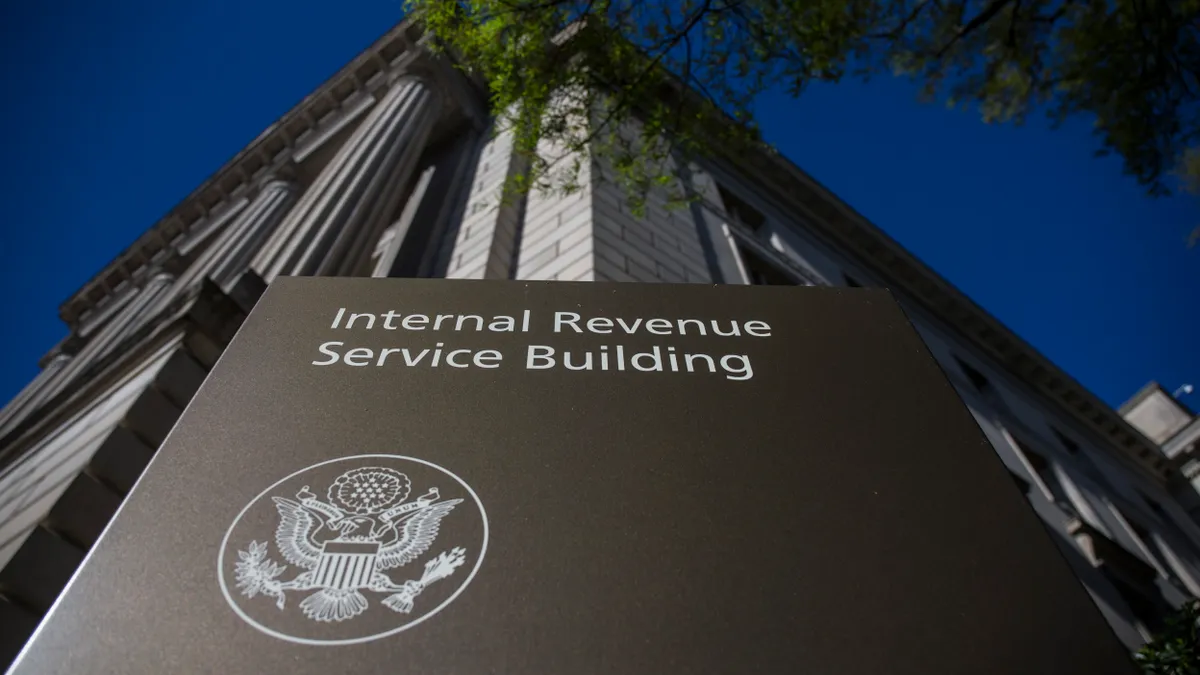Dive Brief:
- The nominee to lead the Internal Revenue Service committed on Wednesday to using an $80 billion increase in the agency’s budget to sharpen enforcement and ensure corporations and high-income taxpayers pay the taxes they owe.
- “The IRS has been ill-equipped to unpack complex and intricate returns of high income taxpayers and large corporations and thus has been unable to close the gap between what these taxpayers owe versus what they pay,” Daniel Werfel, the nominee to serve as IRS commissioner, told the Senate Finance Committee.
- Much of the increase in the IRS budget approved by Congress last year will go toward hiring some 87,000 agency employees, many of whom will focus on analyzing complex tax returns and narrow the so-called tax gap, Werfel said. The new funding is to be used during the coming decade.
Dive Insight:
Werfel spent much of the nearly three-hour hearing parrying Republican criticism of the IRS and the Biden administration plan to use the IRS budget boost for upgrading technology, bolstering taxpayer services and strengthening corporate and individual tax enforcement.
“For reference, $80 billion is more than six-and-one-half times the IRS’s typical annual budget,” Sen. Mike Crapo of Idaho, the committee’s senior Republican, said during the hearing.
“Unease about super-sized IRS enforcement hiring has nothing to do with supporting evasion by ‘wealthy tax cheats,’ but comes from a fear that the IRS will waste untold taxpayer dollars chasing speculative or marginal revenue recoveries, while hard-working Americans and small businesses end up in a dragnet,” Crapo said.
Republicans in the House are also concerned about potential waste and misuse of the extra IRS funding.
In its first vote this year under Republican control, the House on Jan. 9 voted to claw back $71 billion of the new funding earmarked for tougher enforcement. The legislation will likely die in the Senate, which is controlled by Democrats.
Treasury Secretary Janet Yellen has said stepped up enforcement will target big business and taxpayers with incomes exceeding $400,000, and that the audit rates of other taxpayers will not rise above historic levels, Janet Holtzblatt, a senior fellow at the Urban-Brookings Tax Policy Center, said in a report.
Finance Committee Chair Ron Wyden, D-Ore., decried a “two-tiered tax system in America – one for firefighters, nurses and teachers, whose taxes come straight out of their paychecks; another for billionaires and high-flyers, who to a great extent can pay what they want and when they want.”
Low-income taxpayers who have claimed the earned income tax credit are more than eight times more likely to be audited than large partnerships, Wyden said.
“If poor people are more likely to be audited than wealthy, that is something that I think potentially degrades public trust and needs to be addressed within the tax system,” Werfel said.
“I head into this job with a directive from Secretary Yellen, and that is to balance this audit footprint,” he said. “I’m excited and eager to work with the IRS on a strategy that I’ll make very transparent on how to do that.”
Estimates of the tax gap range from $400 billion to $1 trillion, Holtzblatt said, noting “substantial gray areas where the law is ambiguous and the IRS’s determination of taxes owed is debatable.”
“Increases in tax enforcement should be accompanied by reforms in the tax code,” Holtzblatt said.
Werfel also committed to upgrading decades-old technology and ensuring data privacy.
“When I sat down to think about what are the most important elements of tax administration that I could think of, data security was the first thing that I wrote down,” he said.
Sen. John Barrasso, R-Wyo., told Werfel that improving the credibility of the IRS will prove challenging.
“The American people have examples of political targeting at the IRS and weaponization of the tax code,” Barrasso said. “People feel we have an administration that is woke and weaponized against them.”















